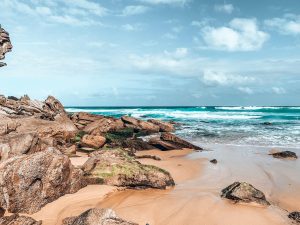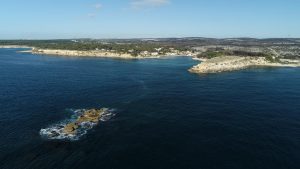Convention on Biological Diversity focal points and representatives of protected areas management authorities from ECOWAS member States Benin, Cabo Verde, Côte d’Ivoire, Gambia, Ghana, Guinea Bissau, Liberia, Nigeria, Senegal, Sierra Leone, and Togo agreed to take an innovative regional approach to expand and strengthen protected areas, build regional resilience and contribute to the global goal of protecting at least 30% of terrestrial, inland water, and of coastal and marine areas by 2030, often referred to as “30 by 30,” at the ECOWAS coordination meeting on expanding and strengthening protected areas held in Abuja, Nigeria from 19-22nd February 2024.
Recent global reports have concluded that the conversion of natural land and ocean areas to other uses is a leading driver of biodiversity loss, and that humanity must urgently protect biodiversity to preserve ecosystem services vital to human well-being including crop pollination, water purification, food security, clean air, flood protection, and carbon sequestration. International organizations have recognized the ECOWAS commitment to ambitious action to address biodiversity loss and the critical role ECOWAS member states played in securing a 30 by 30 target in the Kunming-Montreal Biodiversité Framework adopted by the UN Biological Diversity Convention in December 2022.
Through the adoption of a decision to develop a regional 30 by 30 implementation plan which seeks to secure the effective protection of 30% of the ECOWAS region for biodiversity by 2030, ECOWAS is leading the way towards ambitious implementation of 30 by 30 and is setting an example by being the first region to unite to implement the “30 by 30” objective as a region.
The meeting was co-hosted by Nigeria and Côte d’Ivoire with the support of the the Environment and Natural Resources Directorate of the Economic Community of West African States (ECOWAS) Commission. The meeting was also supported by the CBD Secretariat, the High Ambition Coalition for Nature and People, UNDP Nigeria, Bloomberg Philanthropies Ocean Initiative, Blue Nature Alliance and Campaign for Nature. Country representatives and international experts discussed plans for identifying additional biodiversity areas for protection, improving protected area management, developing a long-term ECOWAS Biodiversity Strategy to coordinate the region’s ambitious response to the biodiversity crisis, and mobilizing adequate funding for biodiversity conservation and sustainable development.
Country representatives also agreed to :
- undertake a data-driven spatial assessment of priority ecosystems for new or expanded protected areas, considering terrestrial, inland waters and coastal and marine areas,
- to begin the process of evaluating existing protected areas throughout the region against conservation objectives to determine if additional actions must be taken to improve their management,
- and to develop a new ECOWAS Biological Diversity Strategy which will include measures to implement 30 by 30 as well as other goals related to reducing biodiversity loss from the exploitation of nature and stopping wildlife trafficking, and building community resilience to the future impacts of climate change and ecosystem decline.
During the meeting, the High Ambition Coalition of Nature and People – an intergovernmental coalition of 118 countries that champions 30×30, of which ECOWAS countries are all members – had its first regional workshop on the tools, namely the 30 by 30 Solutions Toolkit and the HAC 30 by 30 matchmaking tool developed for the implementation of the 30 by 30 target. Country representatives also agreed on working collectively to submit their needs requests to the tools both at a region and national level.
“The ECOWAS region is confronting the biodiversity and climate crises through a regional lens. The healthier our region’s biodiversity is, the better able it will be to withstand future climate and biodiversity shocks and continue to deliver for our people. Through this meeting, ECOWAS countries advance a plan for the effective protection of at least 30% of the region for biodiversity, to preserve our life-giving ecosystems, and to halt immediately the human-induced extinction of wild species. We are doing our part for the planet’s biodiversity, and we call on the rest of the world to meet our ambition by developing their own regional plans for protecting biodiversity and in helping fund the efforts of countries on the front lines of these crises.” Said Dr. Iziaq Adekunle Salako, Nigeria Honourable Minister of State for the Environment.
‘’The High Ambition Coalition for Nature and People was honored to support this critically important event that advances towards a solid plan for the expansion and strengthening of protected areas in West Africa. I wish to congratulate and commend the leadership of the West African countries as this is the first regional effort that has been made in term of coordination of 30by30 since the adoption of the KM-GBF. We were extremely pleased to start our series of workshop in West Africa and we look forward to continue our strong engagement at both national and regional level to ensure that the needs and gaps of ECOWAS countries are well reflected in the HAC for N&P Matchmaking Platform and the 30×30 solutions toolkit. I am proud of the decisions adopted at this meeting that will help West Africa make joint contributions to the global goal of protecting at least 30 percent of the planet’s land and ocean by 2030 and to continue advancing the kind of bold response necessary to confront the biodiversity and climate crises.” said Rita El Zaghloul, Director of the High Ambition Coalition for Nature and People Secretariat.
Editorial notes:
- The ECOWAS region currently protects nearly 13.5% of its terrestrial and inland water areas and a little more than 1% of territorial ocean areas. The Kunming-Montreal Global Biodiversity Framework (“Biodiversity Plan”), adopted in December 2022, sets a global mandate to conserve and protect at least 30% of “terrestrial, inland water, and of coastal and marine areas” by 2030 (30×30) and calls for “effectively” conserving this 30%. The High Ambition Coalition (HAC) for Nature and People, an intergovernmental group of 118 countries, was set up to champion a global deal for nature and people with the central goal of protecting at least 30 percent of the world’s land and ocean by 2030.
- The global 30 by 30 target was set in the context of the dire warning in the landmark Intergovernmental Science-Policy Platform on Biodiversity and Ecosystem Services (IPBES) 2019 Global Assessment Report on Biodiversity and Ecosystem Services that 75% of the earth’s land surface is significantly altered, 66% of the ocean area is experiencing increasing cumulative impacts, and over 85% of wetlands (by area) have been lost; that about one million species are threatened with extinction, many within decades; and that changes in land and sea use and direct exploitation of organisms are the leading drivers of species loss and ecosystem decline.
- In November 2023, the ECOWAS Commission, Nigeria, and Sierra Leone co-hosted a workshop that launched an 18-months project to support ECOWAS member States with the ratification of the newly adopted Agreement under the United Nations Convention on the Law of the Sea on the conservation and sustainable use of marine biological diversity of areas beyond national jurisdiction treaty (“BBNJ treaty”) and developing their capacity to engage in the implementation of the BBNJ treaty after its entry into force. The BBNJ treaty addresses many of the governance gaps for over 60% of ocean, setting out clearer ways to conserve biodiversity in the high seas. The BBNJ treaty is therefore an essential instrument to ensure that 30 percent of the world’s oceans can be protected by 2030 which makes prompt ratification and implementation of the treaty paramount for the world’s oceans. As the result of the workshop, ECOWAS countries committed to promptly ratify the BBNJ treaty to seek the designation of high seas marine protected areas (MPAs) in the Guinea Current Large Marine Ecosystem and beyond.
- The ECOWAS Commission and Nigeria organized a meeting to facilitate coordination between ECOWAS member States on a joint response to the biodiversity crisis in October 2022. The meeting concluded with the adoption of “The ECOWAS appeal for an ambitious global response to the biodiversity crisis,” in which ECOWAS member States agreed to jointly advocate for a “commitment to immediately halt human-induced extinction of wild species and eliminate its associated risks by 2050” and “the global designation of 30% of land, freshwater, and ocean areas worldwide as protected by 2030 (30 by 30) as a first option for climate adaptation and as means to secure the social and economic development of local communities thereby positively contributing to the implementation of the African Union Agenda 2063, ‘The Africa We Want.’”


